Palestine is a powerful symbol pointing toward resurgence of Muslim Ummah
By Xavier Villar
To grasp the significance of Palestine as an Islamic political symbol, it is imperative to develop a conceptual vocabulary that does not derive from Orientalism – defined as a discourse that assumes Western ideology or paradigm is universal and can be applied to understand non-Western phenomena.
Additionally, it should not be territorially confined to the concept of the nation-state.
It is important to explore the possibility of asserting a form of sovereignty not constrained by Western vocabulary. So, it becomes necessary to operate within the confines imposed by this vocabulary.
In other words, if the significance of Palestine as a political symbol is to be analyzed from an Islamic perspective, it is essential to develop a new vocabulary and grammar capable of addressing the specific needs of Muslims.
The political symbolism of Palestine also serves to point towards the resurgence of the Muslim Ummah. Such resurgence is not achievable through a political grammar other than that of Islam.
In other words, rallying around the symbol of Palestine signifies that the possibility of an autonomous political identity is attainable.
The need to construct alternative grammar is crucial to give expression to the needs and aspirations of that autonomous identity.
For instance, the resurgence of the Ummah aims at a power configuration not territorially confined to the dominant idea of the nation-state, which is a direct product of Western colonialism.
In fact, one of the primary criticisms against the use of this new political grammar, which can be termed Islamism, has been its refusal to accept the Westphalian division – the Treaty of Westphalia signed in 1648, which marked the end of the 30-year war and laid the foundations for the modern system of nation-states.
The symbolism of Palestine, when viewed through the grammar termed as Islamism, allows for a departure from the nation-state and proposes an Islamic alternative that comprehends power differently, with its political dimension being the Ummah.
It is evident that the Ummah is not a specific physical place but a political one. It refers to the entire community of Islam, regardless of whether they are in a majority Muslim country or elsewhere.
It can be said, therefore, that the Ummah represents the possibility of building a political identity based on the grammar of Islam, and the role of Palestine is to consistently remind that this possibility is real and feasible.
This can only be achieved by rejecting the current configuration of the world, both in political and material terms, which is defined and articulated by the Western hegemony.
In the latter, Palestine once again serves as a beacon for the Ummah. If the goal is to construct an alternative world, Palestinian resistance demonstrates that the ongoing struggle is one that unites both anti-colonialism and anti-racism.
In the same way, the symbolism of Palestine serves to question the language of liberalism, particularly the limits of human rights within this framework.
Nor can we forget how the centrality of Palestine and simultaneously the criticism of the Zionist entity serve to challenge the entire discourse of white supremacism, especially its objective of creating an ethnonational state.
It is possible to say, therefore, that Palestinian resistance, expressed in a Ummatic language, disrupts ethno-nationalist operations, not only in the occupied territories but globally.
Therefore, the struggle of the Palestinian people signifies a fight for re-humanization.
Only this Ummatic resurgence, based on an Islamic language, can imply an improvement in the living conditions of Muslims, both those residing in Muslim countries and those living outside.
Palestine is a powerful symbol pointing toward this resurgence.
Xavier Villar is a Ph.D. in Islamic Studies and researcher based in Spain.
(The views expressed in this article do not necessarily reflect those of Press TV.)
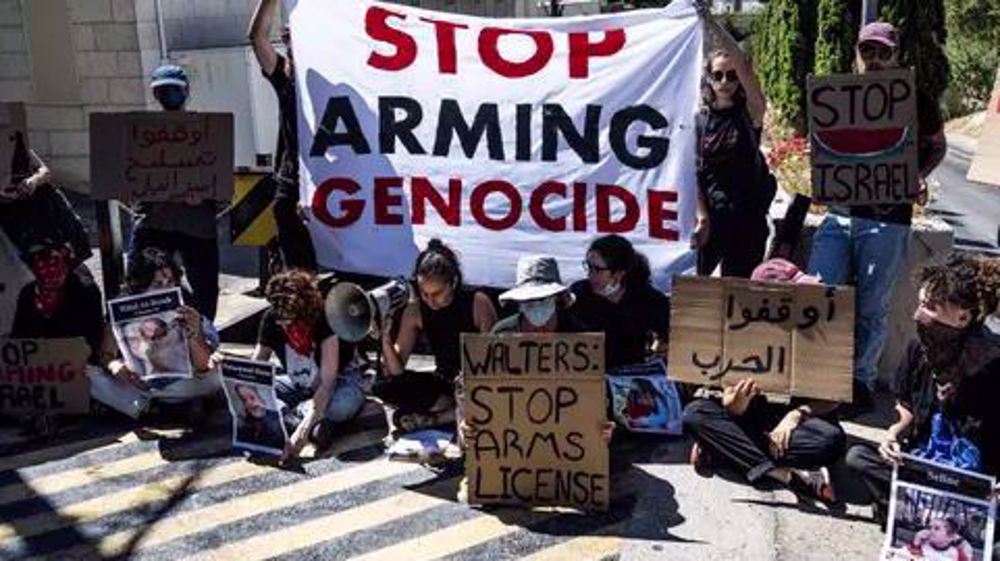
Israel and its arms suppliers ‘must be stopped,’ UN says

Keffiyeh-wearing Jewish woman assaulted by pro-Israel mob in New York
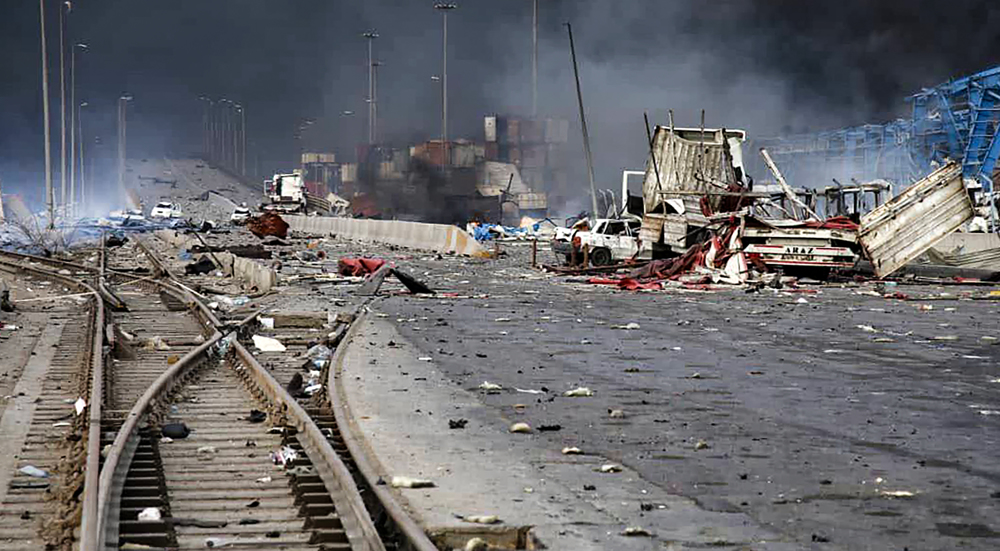
Hezbollah, Hamas, Islamic Jihad express solidarity with Iran after deadly port explosion
IAEA director speaks with Araghchi about Iran-IAEA cooperation
US airstrike on Yemeni capital kills 8 people
VIDEO | Iran multilayered diplomacy
VIDEO | Press TV's news headlines
Iran more than halved its power grid losses to 10% in 16 years: Expert
Abbas names likely successor in move deemed ‘illegitimate, divisive’
Illegal Israeli settlers attack Palestinian school in occupied West Bank
VIDEO | Israeli forces tighten siege on Jenin refugee camp


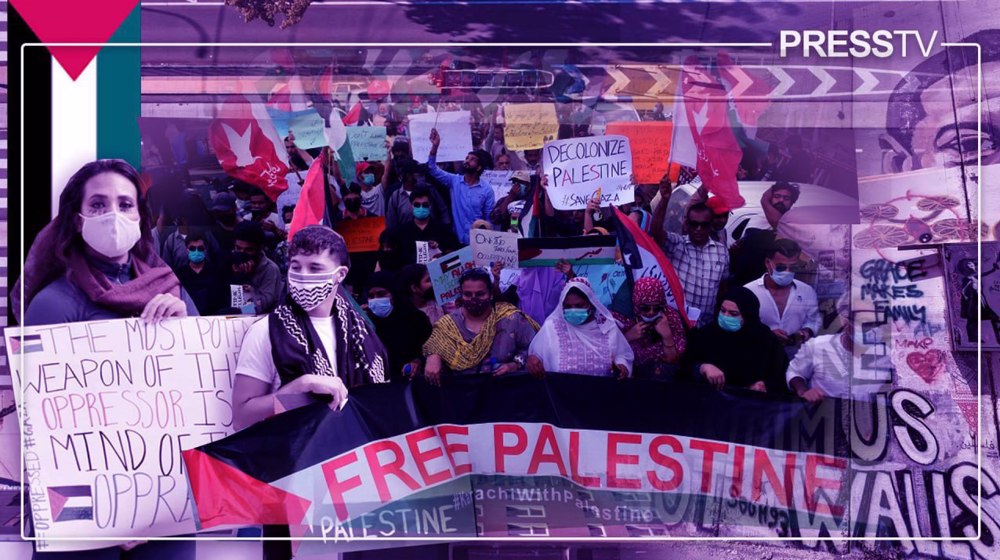




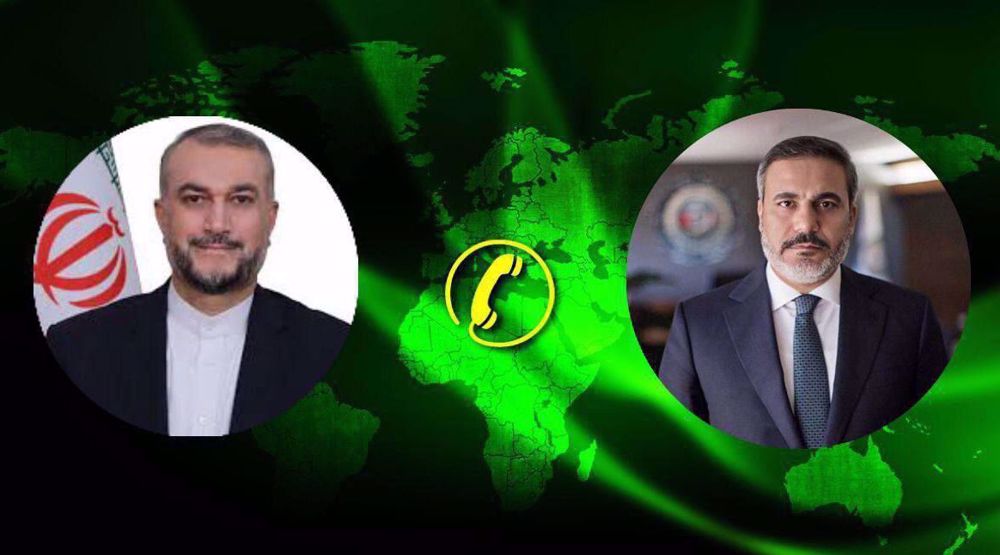
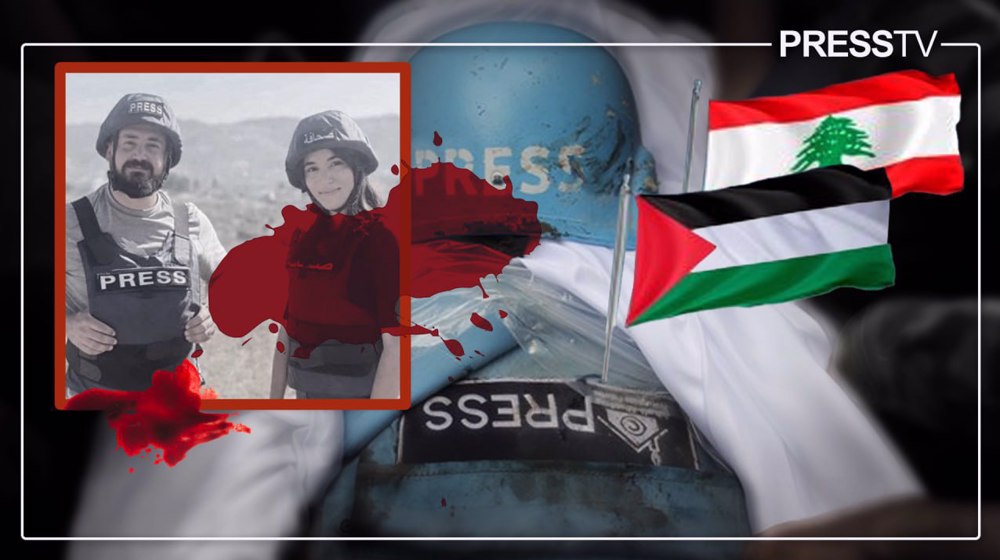
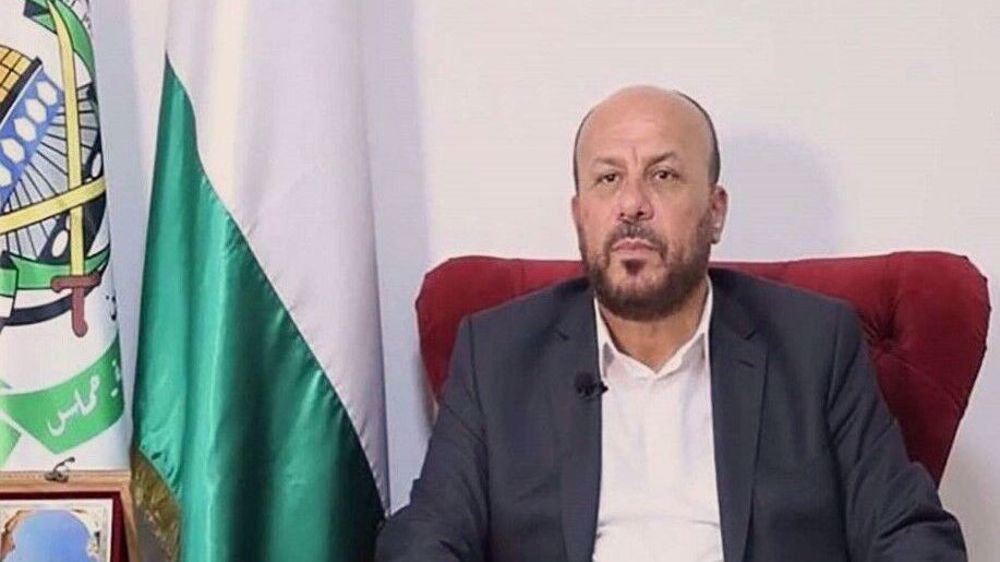
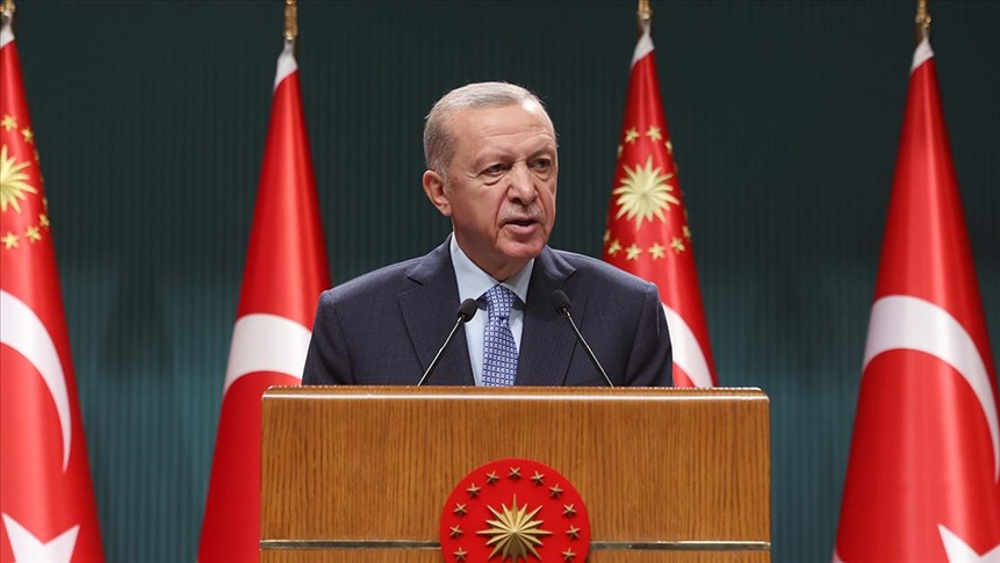

 This makes it easy to access the Press TV website
This makes it easy to access the Press TV website